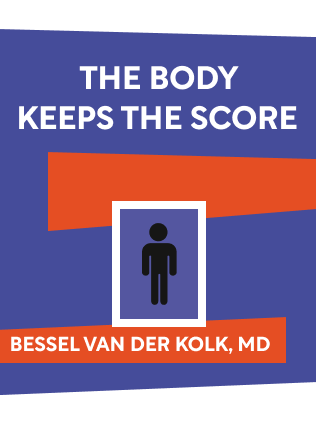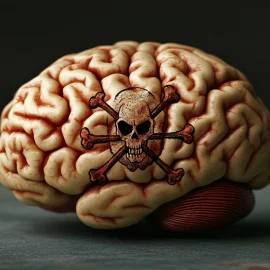

This article is an excerpt from the Shortform book guide to "The Body Keeps The Score" by Bessel van der Kolk. Shortform has the world's best summaries and analyses of books you should be reading.
Like this article? Sign up for a free trial here .
What is the post-traumatic stress disorder definition? How was PTSD defined, and how did that definition change over the years?
The post-traumatic stress disorder definition is a psychiatric disorder that occurs after a person experiences trauma. The symptoms of PTSD can vary from person to person.
Read more about the post-traumatic stress disorder definition and how it changed over the years with new discoveries.
The Post-Traumatic Stress Disorder Definition
Each trauma is different. It can stem from a one-time event or an ongoing experience. And each person who experiences trauma deals with it differently; even two people who experience the same traumatic event may cope with it in entirely different ways. This can make the post traumatic stress disorder definition seem complicated.
This is why the effects of trauma manifest differently in every case: Some people become irritable and have explosive rage, while others shut down emotionally or repress it entirely. But regardless of the outward display of symptoms, all trauma sufferers have neurological and physiological effects that last until effective treatment can heal both the mind and the body. Learning the post traumatic stress disorder definition helps identify it.
The range of symptoms, lack of uniformity, and occasionally the repression or denial of the traumatic event itself can make trauma difficult to identify and diagnose. As we’ll explore in the next few sections, there was no collective diagnosis of trauma until just a few decades ago.
Identifying Trauma in War Veterans
Much of the post traumatic stress disorder definition in its early days was focused on war veterans. Early in the author’s career, he worked as a staff psychiatrist at the Boston Veterans Administration Clinic. There van der Kolk met a man named Tom who had served in Vietnam with the Marines 10 years earlier and, despite now having a beautiful family and successful law practice, was struggling with alcoholism, bouts of rage and feelings of inner torment.
Tom constantly had nightmares of the ambush he experienced in Vietnam, during which everyone in his platoon was killed or wounded. Afraid of the nightmares, Tom would stay up most of the night drinking to dull his pain and memories. He was easily upset and worried about getting angry around his family, because he had trouble controlling his actions. The only things that seemed to bring Tom some sense of calm was either speeding dangerously on his motorcycle or drinking heavily.
As the author listened to Tom explain his background and his current suffering, the author wondered how and why people who experienced trauma remain seemingly trapped in the past, constantly reliving the traumatic event.
It was 1978, and van der Kolk struggled to find much medical literature explaining Tom’s and other veterans’ symptoms, which were historically diagnosed as war neurosis, shell shock, or battle fatigue. He finally found a book that seemed to shed some light; The Traumatic Neuroses of War, which psychiatrist Abram Kardiner published in 1941, described “traumatic neuroses” that caused a chronic hypervigilance to threat. Kardiner’s book explained that traumatic neuroses — which today we’d call posttraumatic stress disorder (PTSD) — has a physiological basis, meaning that the symptoms come from the body’s response to the original trauma. In other words, the effects aren’t not just in sufferers’ heads, but also in their bodies.
The post traumatic stress disorder definition has evolved over time, and scientists are still learning about trauma.

———End of Preview———
Like what you just read? Read the rest of the world's best book summary and analysis of Bessel van der Kolk's "The Body Keeps The Score" at Shortform .
Here's what you'll find in our full The Body Keeps The Score summary :
- How your past trauma might change your brain and body
- What you can do to help your brain and body heal
- Why some trauma survivors can't recognize themselves in the mirror






